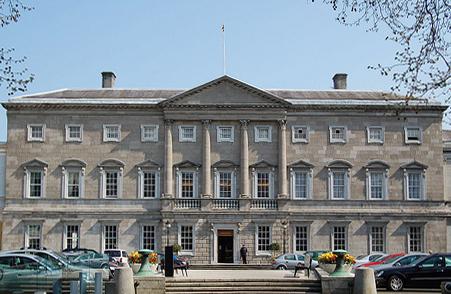Major problems with our political system comprehensively ignored

While there is lots of talk about how fortunate we are to live in a democratic society, there is almost no appreciation of how thin our democracy is, and certainly no will to do anything about it. By Vincent Browne.
There is an impressive determination on the part of our public representatives to avoid the big issues besetting our society and our system of government.
That determination is reinforced by a cultivated capacity to misdiagnose the big issues. For instance, the claim that the State has no money and therefore cannot afford a decent mental health service is half true. Yes, the State has no money, or rather not enough, but it could have plenty of money if it had the will to obtain it – for this society remains a very rich one. There is just no will to raise more money.
There is a nodding acknowledgment that equality matters somewhat, accompanied by a thorough lack of interest in equality.
There is lots of talk about how fortunate we are to live in a democratic society. But almost no appreciation of how thin our democracy is and certainly no will to do anything about it.
There has been a great deal of talk about political reform, notably about electoral reform. It is said fairly often that we need a better calibre of TD and to get that we need a different electoral system. No one asks what would better calibre TDs do? The problem is not with the calibre of our TDs but with what they are allowed do. There is a problem with ministers also. But no interest in grappling with these matters.
There are two major problems with our political system, both comprehensively ignored, while matters of trivial consequence – for instance whether the presidential term should be seven years or five – feature on the agenda of the constitutional convention expected to convene in the autumn.
The first of such problems is that thinness of our democracy. The idea of democracy is that people are self-governing but a representative democracy weakens self-government; all the more so when there are few opportunities for the citizenry to take direct decisions on major issues.
What would be so bad if a referendum had to be held on whatever issue 100,000 citizens deemed necessary, with the referendum outcome being decisive? Yes, there would have to be protections against moral panics endangering basic liberties but it is not beyond our collective wit to devise such protections.
What would be so bad if there were term limits on serving as a TD or councillor? A far larger turnover of public representation would enrich our political culture.
As for what TDs are allowed do? What is the point of TDs if, once a government is chosen by the Dáil, the Dáil is controlled almost entirely by the agency which it supposedly holds to account: the government? Why not a constitutional provision making it an offence to interfere with the conscientious parliamentary vote of members of parliament (as in Germany)?
Or at least, an arrangement whereby a decisive minority (say one-third) of the parliament or of any parliamentary committee, can institute a full-scale inquiry into any aspect of government conduct or policy? But back to ministers. What are ministers for? If ministers are there to formulate policy, then what is the Dáil for? If ministers are there to administer the execution of policy decided by the Dáil and/or to “run” or manage their departments, why choose them from a cadre of Dáil deputies, most of whom have no managerial or executive experience or capacity?
For instance, most of the current ministers never managed anything before they became ministers. Enda Kenny never managed anything, nor did Eamon Gilmore, Michael Noonan, Richard Bruton, Brendan Howlin, Joan Burton, Leo Varadkar, nor any of them, aside, possibly, from James Reilly. And he has turned out to be no great manager. Why not get professional managers in to do the job – the job being to execute the policy decided by the Dáil and to be fully accountable to the Dáil for the execution of that policy?
It will be claimed we need ministers to represent us abroad. Why? What expertise do they have representing us anywhere about anything? What would be wrong were professionals to represent us and to be thoroughly accountable before and after crucial meetings, with no plenipotentiary powers to decide anything on their own?
Angela Merkel isn’t allowed by the German constitution to decide crucial issues affecting her country at EU summits, but Enda Kenny is free to decide crucial issues affecting this country at EU summits – even changes to the EU constitution. Why?
And, finally, what about a constitutional provision requiring the State to provide elementary sustenance, healthcare, appropriate education and basic accommodation to citizens – even cherishing the children of the nation equally and giving the courts the powers to force the State to do that when it failed?
None of these changes will happen because the government of the day will not allow them to happen. The government of the day won’t yield its control of the Dáil for it wouldn’t like to be accountable. It won’t agree on giving citizens a direct say on crucial decisions (aside from constitutional amendments) because that would weaken its power. It won’t agree on the abolition of ministers for they like their jobs and status; and no way will we have the courts interfering on what they regard as the exclusive realm of government.
The government decides even on what we are allowed to decide.
Some democracy. {jathumbnailoff}
Image top: stephen_dedalus.
